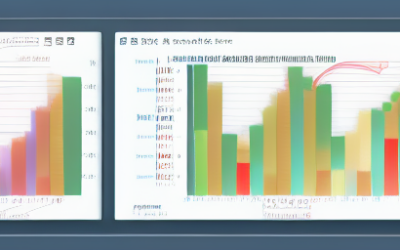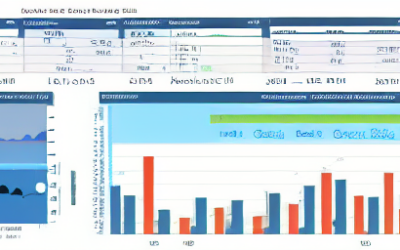Big Data Analytics is the process of analyzing large sets of data to uncover patterns and trends. It is a form of advanced analytics that helps organizations analyze vast amounts of data to make better decisions, understand customer behavior, identify new opportunities, and optimize operations. Big Data Analytics involves the use of a variety of tools and techniques to analyze large datasets, such as machine learning and predictive analytics.
Tech Blog
Tech Insights, Information, and InspirationAutomated Predictive Analytics
Automated Predictive Analytics is an advanced form of data analytics that uses machine learning algorithms to analyze large amounts of data and make predictions about future events. This technology can be used to identify trends, forecast outcomes, and make decisions about how to best proceed in a given situation.
The Stages of Data Analytics
Data analytics is the practice of collecting, cleaning, organizing, and analyzing large sets of data to identify meaningful patterns and trends. The goal of data analytics is to bring insights to business processes and operations, helping organizations make smarter decisions and achieve better outcomes. Data analytics can be used to drive customer segmentation, marketing campaigns, product innovation, and more.
What is reinforcement learning?
Reinforcement learning (RL) is an area of machine learning that focuses on how an agent takes actions within an environment in order to maximize a reward. This type of learning involves trial and error, with the agent receiving positive reinforcement when it performs a desired behavior, and negative reinforcement when it doesn’t. In this way, the agent is able to learn from its mistakes and adjust its behavior accordingly.
Hyperautomation Technology
In hyperautomation, businesses automate as many tasks and processes as possible to increase efficiency and productivity. This can include everything from automating customer service to automating marketing tasks. By automating as many tasks as possible, businesses can free up employees to focus on more important tasks, such as innovation and strategic planning.
Improving Data Quality
Data quality is important because it can be used to improve decision making, to assess the performance of organizations and individuals, and to help understand and manage risks. Additionally, data quality can be used to improve the efficiency and effectiveness of processes and systems. Finally, data quality can help create a competitive advantage for organizations.
Managing Data with Data Engineering
In the modern business world, data engineering is increasingly important in order to make informed decisions. Data engineering is the process of collecting, storing, cleaning, and transforming data so that it can be effectively used for business analytics and decision making.
Big Data
Big data is a term for large volumes of complex and diverse data sets. Big data analytics analyzes these sizeable data sets to identify patterns, relationships, and trends.
Get In Touch
UseTech Design, LLC
TROY, MI • BLOOMFIELD HILLS, MI
Call or text +1(734) 367-4100







